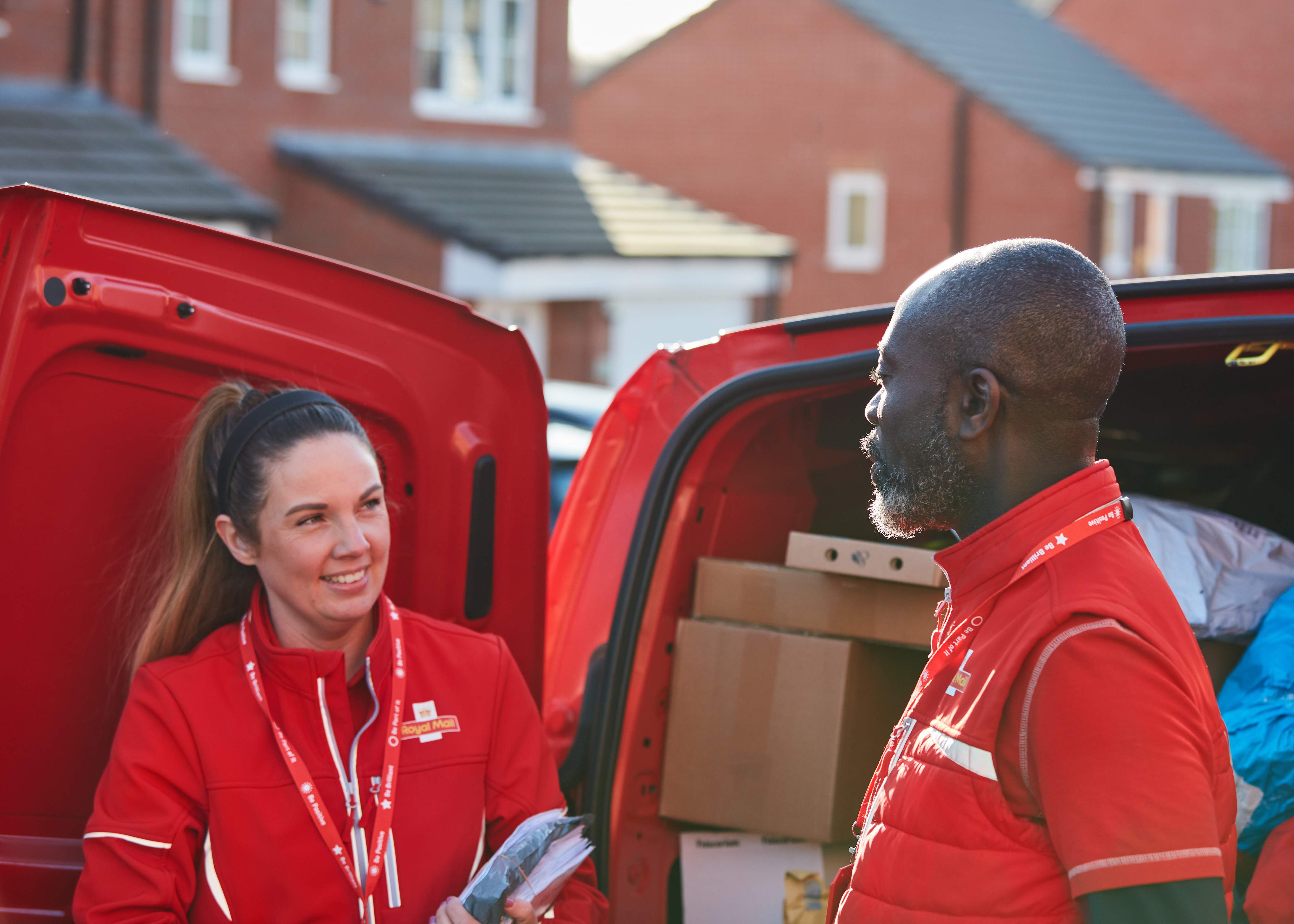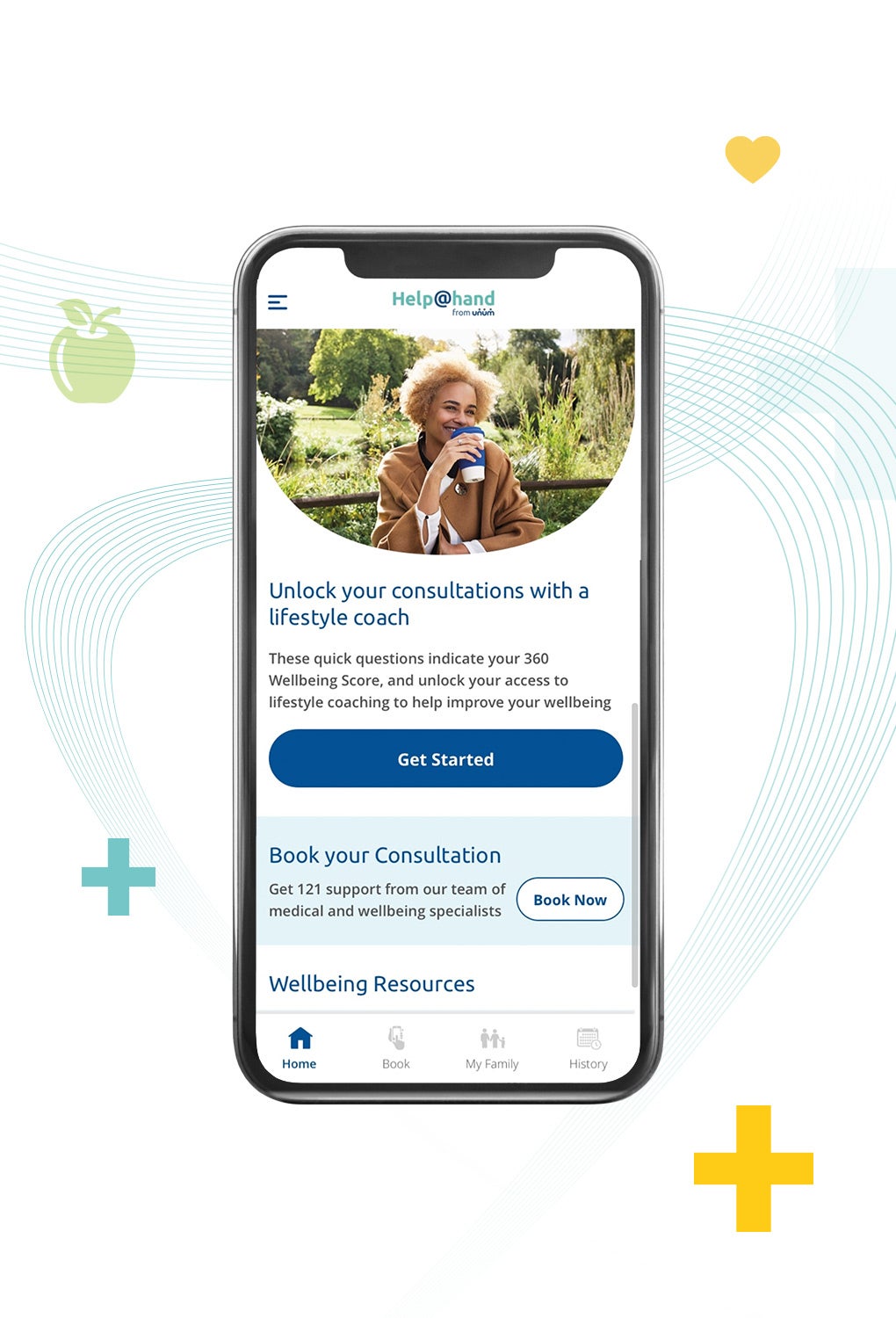How Unum’s Help@hand is addressing the complexities
Of taking care of the nation’s post force
Over 10 mins ·
last edited

The institution that we now call Royal Mail dates back to 1516 and is one of the oldest organisations in the world. It’s been responsible for a number of global firsts — including the first postmark, stamp, and post box. Originally created to serve Henry VIII and his court, today Royal Mail’s operation is an international one. Its 130,000 employees collect, sort, and deliver vital correspondence via 11,000 local collection points. In the financial year ending March 2022, Royal Mail delivered just under 8 billion letters.
Unum has been providing Royal Mail with Group Income Protection since April 2009, and won its Group Life policy in July 2022. But in the past year the company’s focus on colleague health and wellbeing has really been ramped up, which has seen the two companies working ever-more closely together to take care of the nation’s post force. We talk to Fiona McAslan, Head of Wellbeing at Royal Mail, about how it’s all coming together.
What were your first impressions when you arrived at Royal Mail?
I joined the company in October 2022, after 18 years with NatWest — I’d led their wellbeing strategy for around eight years. I knew it was going to be a big change as this is such a different environment, but there’s so much that we can do to help our employees. This is a unique, proud and traditional organisation and we have an incredible opportunity to support our people. The biggest challenge is finding the right ways to reach people and make sure they’re getting all the support they need.
COVID shifted wellbeing at work up most companies’ agendas, with it moving out of the ‘nice to have’ bracket into being seen as having real strategic value. When I arrived there was a wellbeing programme in place but there was a huge opportunity to do more and make the best of the resources that we had available to us, so that’s something we’re working hard to change.
So what are the issues facing people at Royal Mail?
Royal Mail employees often suffer from musculoskeletal issues, due to being on their feet, lifting heavy bags and so on. Joint pains and injuries that result from the very nature of the job is our number two reason for absence. Mental health issues and illness being the number one reason for absence. And I’m not sure that we’re getting the true picture, because I suspect the colds, flus, migraines, will also be related to mental health. People are reticent about coming forward for help with mental health issues, so that makes it even harder to tackle.

And what’s blocking colleagues getting help?
There’s a natural blocker that by opening up you’re showing your vulnerability to those around you. And that extends to your employer as well. There’s a (quite natural) reticence to say you’re struggling with depression or anxiety, or low mood, because people may feel this could be a black mark against them and affect their career.
Alongside that there’s the fear that if, say, you’ve got a bad back and have to take time off for that, how that could be perceived. So we really need to tackle that culture and make a step change to show that we’re genuinely here to help. We need to open up our mental health culture, and work with colleagues to show it’s okay to talk about what’s bothering you and educate people to have more helpful conversations with their manager. Now we’re starting to break down these barriers we’re noticing a kind of seesaw effect — more people are reporting mental health problems, but we are seeing a reduction in colds and flus.
You can’t ignore the fact that we’ve got a huge workforce, who are spread across the country and who have differing access to tech. Plus if you look at our age and gender profile most of our employees are male and in their 40s, 50s, even 60s. They’re not typically people who readily open-up about things.
You’ve been working hard at rolling out Unum’s Help@hand health and wellbeing app. Why do you think this is so important?
It’s hugely important for our colleagues to take up access to Help@hand. It’s such a valuable resource and it’s just there, on your phone. It gives people control over so many aspects of their own health and wellbeing and we’re delighted to be rolling it out to employees and their families.
I’ve had such good feedback from employees who’ve used the service — people whose children were sick in the middle of the night, who were issued prescriptions by a remote GP so they could fill it as soon as the pharmacy opened. Normally you’d be in a queue at 8am to even get an appointment. And people who’ve found someone to talk to about what’s troubling them, or to give them online physiotherapy. Quick access to these services is so helpful and it can nip a problem in the bud, which means people can be feeling better quicker, and get back to work safely.
Have you had a good take up of the app? Is there anything stopping people getting on board?
As of October 2023 we’ve had nearly 20,000 sign ups, which is fabulous. But there’s plenty more to be done! One of the biggest barriers is trust. Because a lot of people regard the increasing focus on workplace health and wellbeing as a bit of a new thing, they can be a bit suspicious.
So as part of our wellbeing proposition, we need to be really clear around issues of confidentiality and independence. It’s great to be able to offer employees access to a remote GP, or mental health support, but they need to be reassured their private health issues will remain confidential.

So what’s the secret to a successful roll out?
A ‘one size fits all’ approach to health and wellbeing isn’t fit for purpose any more — typically you need to find ways to reach everyone and break down a range of barriers. So our overall strategy is multi-faceted and that’s really reflected in the way that we’re rolling out Help@hand.
There’s nothing that speaks as loud as personal experience, so we’re investing in our Wellbeing Ambassadors to spread the word – and we’ve grown our network from 300 to over 1,200 ambassadors in 7 months. We’ve set up team meetings to tell people more about what Help@hand can do for them, allowing time to go through the registration process so people walk away all set to go. That breaks down the barrier that ‘it’s too complicated to get into’.
We embrace awareness days, so we can relate real-world issues to the support available. Being relatable is so important, you need to talk to the right people in the right language and not lecture them. Signposting colleagues towards support services that are going to help them when they have a problem.
One of the first challenges we faced was quite a simple one — how do we get people to sign up to a benefit that requires a workplace email when they don’t have one? That’s where Unum was so accommodating, giving us a simple PIN which employees could use instead. Once they’re logged in, they can update the settings to use their private email address.
How important is Unum’s input to your overall health and wellbeing strategy?
So important. I was talking about trust earlier, and how establishing trust between all colleagues is vital. It’s equally essential for an employer to trust its third party providers — the strong partnership between us was very apparent when I arrived at Royal Mail and I see Unum as an extension of our wellbeing team. We work well together, we have similar values, and you’re not afraid to change the way things work or challenge the norm. We’re one team, working together to do the right thing for our colleagues.
What does the future hold for health and wellbeing at Royal Mail?
Having just relaunched our wellbeing proposition we’re building on our core foundation! I want to work more closely with our third party suppliers, like Unum, to explore the art of the possible and we’re establishing our partner forum to do just that. We don’t know everything that’s out there in terms of health and wellbeing and we’re more than ready to push the boundaries.
I’m really passionate about wellbeing because I know it can make such a difference to an organisation and the people within it. And we’re now in the space where it feels absolutely integral to everything we do. Healthy people are right up there at the top of the company’s list of priorities and we’re forging ahead with things like mental health training and support.
The activities we carried out around Mental Health Awareness Week showed us just how important this is — we were overwhelmed by the level of engagement. I think people are crying out for that kind of support and it feels great to be able to help them access what they need.
"I’ve had such good feedback from employees who’ve used the service — people whose children were sick in the middle of the night, who were given prescriptions by a remote GP so they could fill it as soon as the pharmacy opened."

Head of Wellbeing at Royal Mail Group
Help@hand is provided to Unum Group customers by Square Health. It offers access to services designed to manage the health and wellbeing of employees and their families. Help@hand is entirely separate from any Unum insurance policy. Help@hand is not part of the insurance contract, is provided by Unum for no additional cost to its customers, and Unum can withdraw or change the service in the future. Help@hand is available to UK residents only. Unum offers access to the Help@hand services provided by third parties. Square Health Limited, registered in England and Wales Number 07054181. Crown House, William Street, Windsor SL4 1AT.